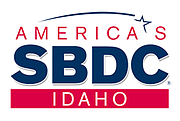Empowering Communities: The role of HUBZones in economic development

Beth Freeman Myers
Did you know that the physical address of your business office may provide you an advantage with government contracting? The federal government spent $705 billion in procurement activities in 2022. In an effort to promote economic development and empower underutilized communities, the United States government introduced the HUBZone program. HUBZones, or Historically Underutilized Business Zones, are designated areas where small businesses receive preferential treatment in government contracting. The HUBZone program serves as a catalyst for economic growth, job creation and community development in historically underutilized areas.
1) Understanding HUBZones: HUBZones are geographic areas typically found in economically distressed regions, in both urban and rural areas. To qualify for SBA HUBZone certification, businesses must meet specific criteria, including maintaining a principal office in a designated HUBZone, employing a certain percentage of residents residing in HUBZones, and ensuring the majority ownership of the business resides with U.S. citizens. (See specifics at SBA HUBZone Program: https://shorturl.at/akxET)
2) HUBZone Certification Benefits: Obtaining the SBA HUBZone certification grants a company eligibility for certain advantages when competing for government contracts, including:
Set-Aside Contracts: Government agencies are required to set aside a percentage of their contract dollars specifically for HUBZone-certified businesses (at least 3%). This provides access to a pool of contracts that are exclusively available to HUBZone-certified companies.
Price Evaluation Preference: In full and open competition, the government can apply a price evaluation preference of up to 10% to bids from HUBZone businesses. This gives certified companies a competitive edge on pricing when competing in the open market.
Subcontracting Opportunities: Large prime contractors who win government contracts must subcontract a portion of the work to small businesses, including HUBZone firms. Certified businesses can take advantage of these subcontracting opportunities, providing them with a chance to collaborate with larger companies and gain valuable experience.
3) Job Creation and Economic Impact: By providing incentives for businesses to establish operations in HUBZones, the program helps reduce unemployment rates and boosts local economies. Small businesses in HUBZones are more likely to hire from within the community, creating employment opportunities for individuals who may have faced barriers to employment in the past. This infusion of jobs and economic activity revitalizes communities, reduces poverty levels, and fosters long-term sustainable growth.
4) Community Empowerment and Development: HUBZones play a vital role in empowering historically disadvantaged communities. By attracting investment and encouraging entrepreneurship, HUBZones provide opportunities for local residents to start businesses and participate in economic activities. HUBZones also facilitate the development of local supply chains and networks, encouraging collaboration among businesses within the same zone. These connections foster community resilience and create a supportive ecosystem for entrepreneurs, enabling them to thrive and contribute to the overall well-being of the community.
Applying for HUBZone certification through the Small Business Administration (SBA) involves submitting an application to the SBA, providing detailed information about the business's eligibility and compliance with the program's requirements. The SBA carefully reviews each application and, if approved, grants HUBZone certification, opening doors to contracting opportunities with federal agencies and prime contractors. Thorough preparation and adherence to the SBA's guidelines are key to a successful application.
To determine if your business’ primary office is located in a designated HUBZone, enter the physical address in the search box via the HUBZone Map at https://shorturl.at/ruFPR.
For assistance with submitting a HUBZone application and other federal contracting topics, please contact the Idaho APEX Accelerator (formerly PTAC) at Idaho APEX Accelerator (https://idahoptac.org/).
• • •
Beth Freeman Myers is an APEX Consultant at North Idaho College's Small Business Development Center. APEX consultants assist existing business owners in securing government contracts. The NISBDC offers resources and training, no-cost business coaching, and serves the five northern counties of Idaho. Its mission is to accelerate business in the community through business resources, training, and no-cost, one-on-one coaching in leadership development, strategic planning, financial management, and more. Reach us at 208-665-5085 or nisbdc@nic.edu.











